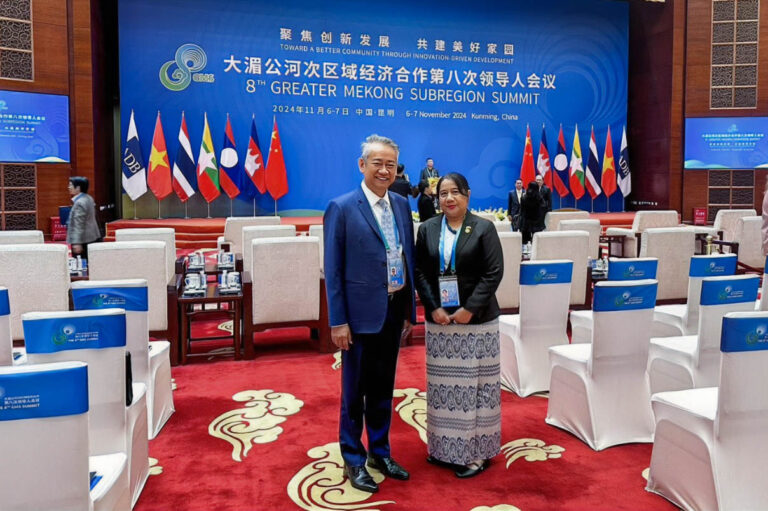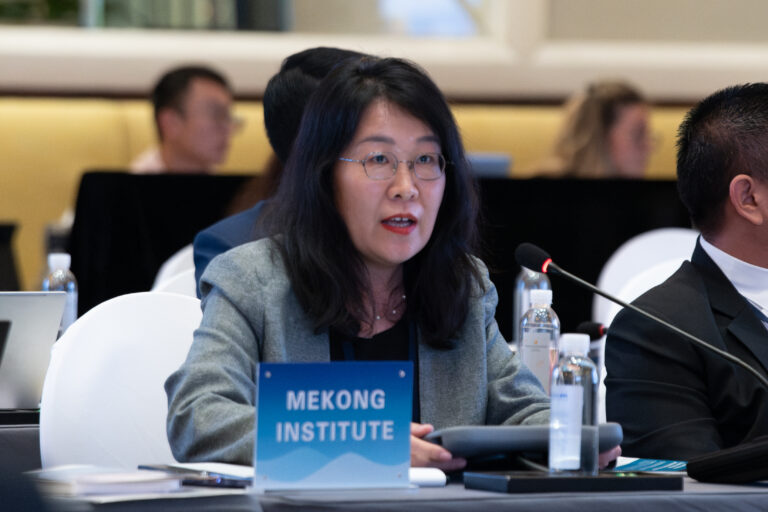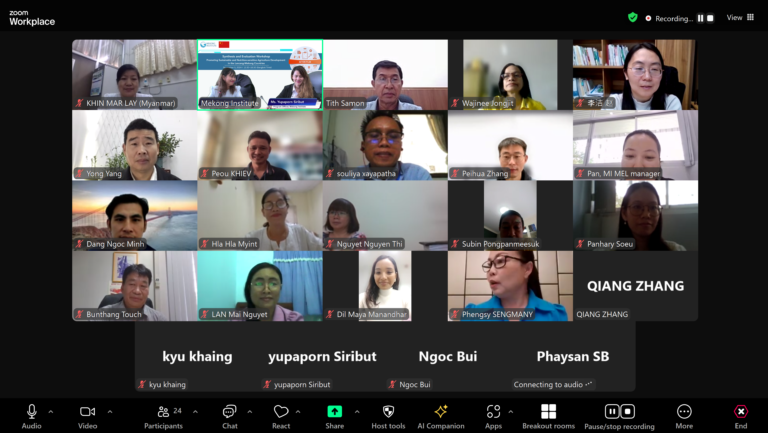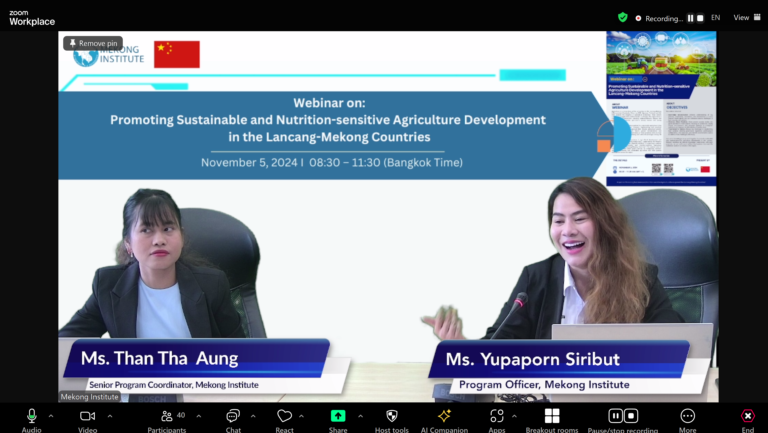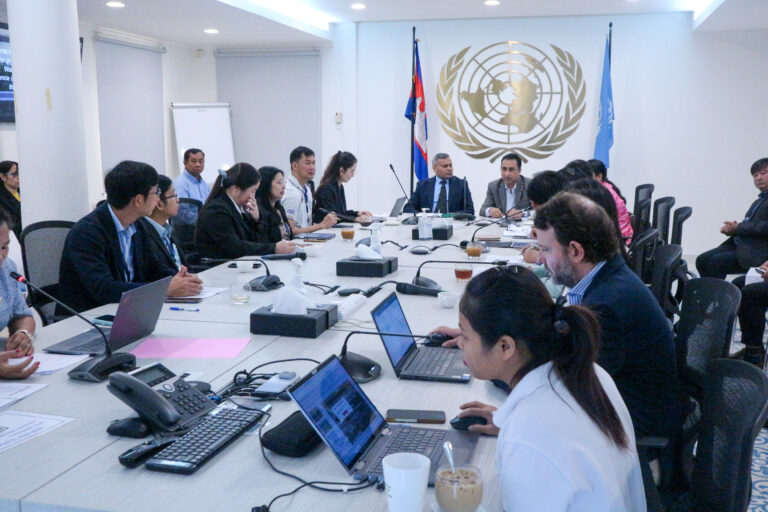With support from the Thailand International Cooperation Agency (TICA), Ministry of Foreign Affairs and International Institute for Trade and Development (ITD), Mekong Institute (MI) conducted a one-week regional training on “Sustainable Transport and Logistics Planning and Management” from December 19 – 23, 2016 at MI.
The training aimed to support national development policies for transport and logistics sectors through sharing transport sector development experiences of Thailand, and to increase knowledge and skills on logistics operations & services, planning and management for greater efficiency and effectiveness.
“Logistics is one of the focused sectors under the GMS Economic Cooperation program initiated by Asian Development Bank (ADB) for further integration and development toward an ASEAN Economic Community (AEC)” Speaking at the opening ceremony, MI’s Executive Director, Dr. Watcharas Leelawath, said “MI is collaborating and collecting logistics business data for the GMS logistics database development (www.logisticsgms.com). It is a tool for business marketing and networking and global business partnership.”
A total of thirty-three participants from Lao PDR and Thailand attended the training. Among them, twenty-five Laos participants were from the Department of Public Works and Transport, Lao-India Entrepreneurship Development Center (LIED), State Enterprise Road-Bridge Construction Company, Lao Nissin SMT Co., Ltd., and KOLAO Development Co., Ltd., and eight Thai participants were from the Organic Rice Community Enterprise, Sakaeo Community College, Valaya Alongkorn Rajabhat University, and the provincial Cooperative Office and Transport and Logistics companies. The training will also present pertinent topics to improve understanding of transportation and logistics sectors in the GMS, particularly in Lao PDR and Thailand. The participants are requested to share experiences and learning with each other. It’s importance is to fulfill knowledge and skills which can be applied to the participants’ workplace effectively.
The participants gained knowledge and skills that were delivered and shared by in-house resource persons and external experts, covering five interrelated modules on (i). Need and Importance of Transport and Logistics, and Challenges and Opportunities, (ii). Strategy for Transport Planning and Management, its Operation Documents and Quality Standard for Truck Operations – Transport Sector Experience of Thailand, (iii). Customs and International Agreements in the GMS & ASEAN and Transport Regulations, (iv). Green logistics, and (v). E-logistics – Distribution and Supply Chain Management.
Additionally, a structured learning visit to a driving institution in Khon Kaen was organized. The visit aimed to enhance the understanding and identify elements of logistic sector management with a focus on modern driving techniques and programs. The participants worked in groups to elicit information on (i). procedure and documentation preparation, and problems and challenges between coordination with government and private sectors, (ii). Strategy for freight accident reduction and type of the offered/trained programs by the institution, (iii). Performance of the institute and its programs, (iv). CSR program and driving training curricula development, (v). Details of transport and logistics capital management and procedure to get authorization/approval of the government in operating driving school business, and (vi). Process of establishing a driving school and its service fee.
On the last training day, the participants prepared and developed action plans (AP) to disseminate the knowledge and skills they gained during the training to various stakeholders. The action plans cover defined activities related to transport and logistics planning and managing the adoption of a specific service quality standard “Q” mark standard, environmental responsibility with “Green” for logistics business, and logistics business data collection for GMS business database. The participants’ implementation progress will be monitored and the AP results will be reported to MI within six months from the commencement of the APs.



